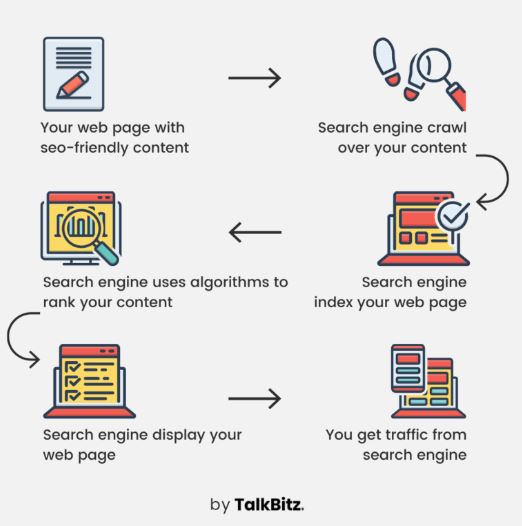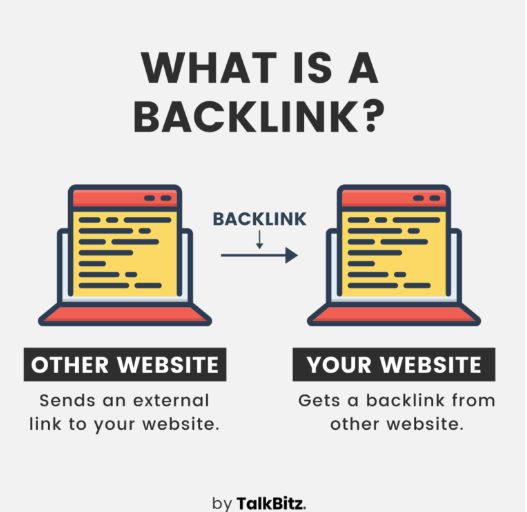In the digital age, a website is essential for businesses and bloggers. However, simply having a website isn’t enough to guarantee success. To have your website seen by potential customers or readers, you need to ensure that it ranks well on search engine results pages (SERPs). This is where SEO writing comes in.
SEO writing involves creating content designed to rank well in search engine results. This means considering factors such as keywords, meta tags, and link building when creating content for your website. By using these elements effectively, you can help ensure that your website appears at the top of search engine results pages when people search for relevant terms or phrases related to your business or topic.
As a website owner and blogger, I constantly strive to improve my online presence’s visibility. One of the most important aspects of achieving this goal is learning about search engine optimization (SEO). By implementing effective SEO strategies, I can improve my website’s ranking on search engine results pages and increase the likelihood that my content will be seen by more people. Through research and practice, I am working to develop my SEO skills to create valuable content that reaches a wider audience.
Why is SEO Important?
SEO, or search engine optimization, is crucial for any business or website looking to establish a strong online presence. With millions of websites on the internet, it can be difficult to stand out and attract visitors. SEO helps improve a website’s visibility in search engine results pages (SERPs), making it easier for potential customers to find and interact with your business. By optimizing your website’s content and structure, you can increase organic traffic and build brand awareness. We must turn to search engines to direct traffic to my website through valuable and engaging content to achieve this. Relevant and SEO-friendly content is crucial in ensuring that my website ranks at the top of search engine results, making it more likely for people to visit your site and engage with what we offer. By prioritizing high-quality content, blog site owners will attract more visitors and grow their online presence.

As someone who has been writing blogs for quite some time now, I have come to understand the importance of SEO writing to make my work more visible and accessible to readers. In this article, I will share with you some of the key factors I have learned throughout my journey as a blogger. By following these essential tips and tricks, you can greatly improve your own SEO writing skills and increase your chances of reaching a wider audience.
1. Choose a Keyword
Choosing the right keyword is essential if you want to succeed in your SEO strategy. A keyword is what users type into search engines when looking for information or solutions. Therefore, spending time and effort selecting the most appropriate and relevant keywords for your website is crucial. You should focus on low-competitive keywords that will help you rank higher in search results. Creating content around these keywords will increase your chances of attracting more traffic to your website and ultimately drive business growth. So, make sure to prioritize keyword research when developing your SEO plan.
One effective way to kick-start your keyword research is by utilizing answerthepublic.com, an SEO tool endorsed by Neil Patel. Using this platform, you can easily identify the most commonly asked keywords and search for related questions that people are interested in. Once you have found these relevant questions, you can focus on creating high-ranking blog post topics that cater to those queries. This approach can help improve your website’s visibility and attract more traffic to your page.
To increase the chances of ranking your content for a particular keyword, it’s important to consider search volume and difficulty. If the keyword has a significant search volume and the difficulty is manageable, you have a higher chance of success. However, it’s not enough to choose a high-volume, low-difficulty keyword and expect to rank well. You also need to pay attention to keyword trends. Specific keywords may be more popular at certain times of the year or related to specific events or topics relevant to your blog. By staying on top of these trends and incorporating them into your content strategy, you can improve your chances of ranking higher in search results.


Using relevant keywords is crucial if you’re a blogger looking to improve your website’s traffic and visibility. The screenshot shown above indicates that the keyword is mainly related to blogging, which means it can effectively promote your blog through your topic. However, if you’re new to keyword research and want to learn more about it, the Answer the Public tool offers a free keyword research course as part of their free trial. This is a great opportunity for beginners to gain valuable insights on optimizing their content using keywords and boosting their online presence.
2. Write a Perfect Title
The title of your webpage plays a crucial role in informing both search engines and visitors about the content and value of your page. To boost your search engine rankings, it’s important to write a catchy title that accurately reflects the purpose of your webpage. However, it’s recommended to keep the length of your title between 50-60 characters to ensure it doesn’t get cut off in search results. Additionally, including the keyword or phrase at the beginning of the title can increase its relevance and visibility.
3. Include the Keyword in the URL
Having an optimized permalink structure is crucial for SEO writing. It ensures that your post URL is focused on the content of your article and is kept short and user-friendly. Using WordPress, you can easily set up your permalink structure from the General settings. This will make it easier for visitors to understand your post and improve your chances of ranking higher in search engine results pages. So, it’s essential to take some time to optimize your permalink structure to ensure better visibility and reach for your content.
Namecheap is a great option for anyone looking to purchase an SSL certificate at an affordable price. They offer the lowest prices in the market, making it easy and accessible for website owners to secure their sites and protect their users’ data. However, if you already have a hosting provider, you can still purchase an SSL certificate from them. It’s always important to ensure that your website is secure and trusted by your visitors, and having an SSL certificate is a crucial step in achieving that.
4. Start Writing, Including Keyword(s)
When it comes to writing SEO content, keyword placement is one of the most important things to keep in mind. By incorporating your focused keyword into the first paragraph of your content, you can effectively kick-start your SEO writing efforts. This strategy introduces the topic you will be discussing and helps search engines understand what your content is all about. As a result, your website or blog post may rank higher in search results for relevant queries, ultimately driving more traffic and engagement to your site. So, prioritize keyword placement in your first paragraph for optimal SEO success, whether you’re writing a product description or a blog post.
When it comes to optimizing your content for search engines, there are a few key places to include your keyword.
Title
URL
The first paragraph
Subheadings (where possible)
Paragraphs (if possible)
Alt-tags for images
One important aspect of optimizing your content for search engines is writing in your style and incorporating keywords naturally. If you’re using WordPress as your blogging platform, be sure to install the Rankmath or Yoast WordPress plugin. These plugins offer built-in suggestions based on best SEO practices, making optimizing your content and improving your search engine rankings easy. Don’t forget to take advantage of these powerful tools to help increase the visibility of your website!
5. Link to Other Posts
Internal links are a crucial aspect of SEO writing that should not be underestimated. They play a pivotal role in communicating to search engines what your website is all about. By linking relevant blog posts together, you create a structure that enables visitors to navigate your website easily. This enhances the user experience and encourages users to spend more time on your site, which can lead to increased engagement and conversions. Therefore, it’s essential to ensure that every relevant blog post is linked to one another for maximum impact.
6. Get Links From Other Websites
Backlinks are an essential aspect of website optimization that can help increase your online visibility and credibility. As a blogger, I understand the importance of backlinks in boosting my website’s ranking on search engines. Currently, I am working with other blog owners to create natural and high-quality backlinks for my websites. A backlink is essentially an endorsement from another website, telling search engines that they trust your content enough to link to it. This not only improves your search engine ranking but also shows potential readers that you are a reliable source of information.

When it comes to links, quality trumps quantity every time. It’s not about how many links you can get but rather the relevance and naturalness of those links. To ensure your links are top-notch, focus on creating unique and up-to-date content that will attract other sites to link to you. If you notice outdated content linking back to your site, don’t hesitate to reach out and offer them a link to your fresh content instead. By prioritizing the quality of your links, you’ll see much more success in boosting your online presence and increasing traffic to your site.
What’s Next on SEO Writing?
SEO writing can be quite tricky, but understanding the basics is essential for beginners. While there is more to learn about SEO, the key takeaway is always to write content with your readers in mind. In my experience, publishing high-quality content alone isn’t enough to get ranked in higher positions. You’ll also need to focus on building high-quality backlinks that can help you gain more visibility online. With a little bit of effort and patience, anyone can improve their SEO writing skills and achieve better results over time.
In conclusion, I hope this brief guide on SEO writing has been helpful to you. It can be a little overwhelming to understand all the different aspects of SEO, but with practice and the right tools, anyone can master it. To take your online visibility to the next level, check out the recommended tools. I plan on delving deeper into SEO on my website and sharing what I learn along the way. Stay tuned for more! 🙂

